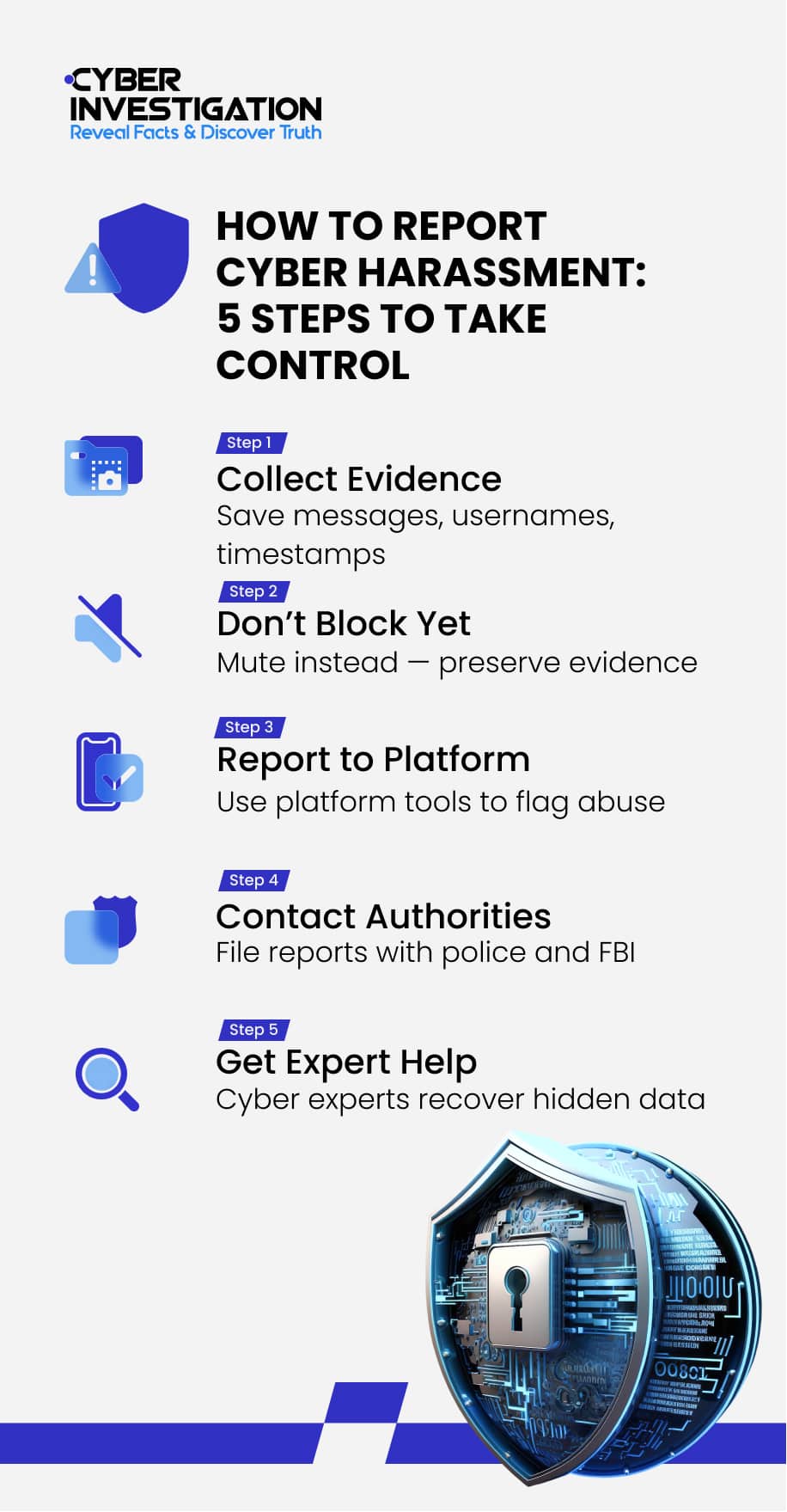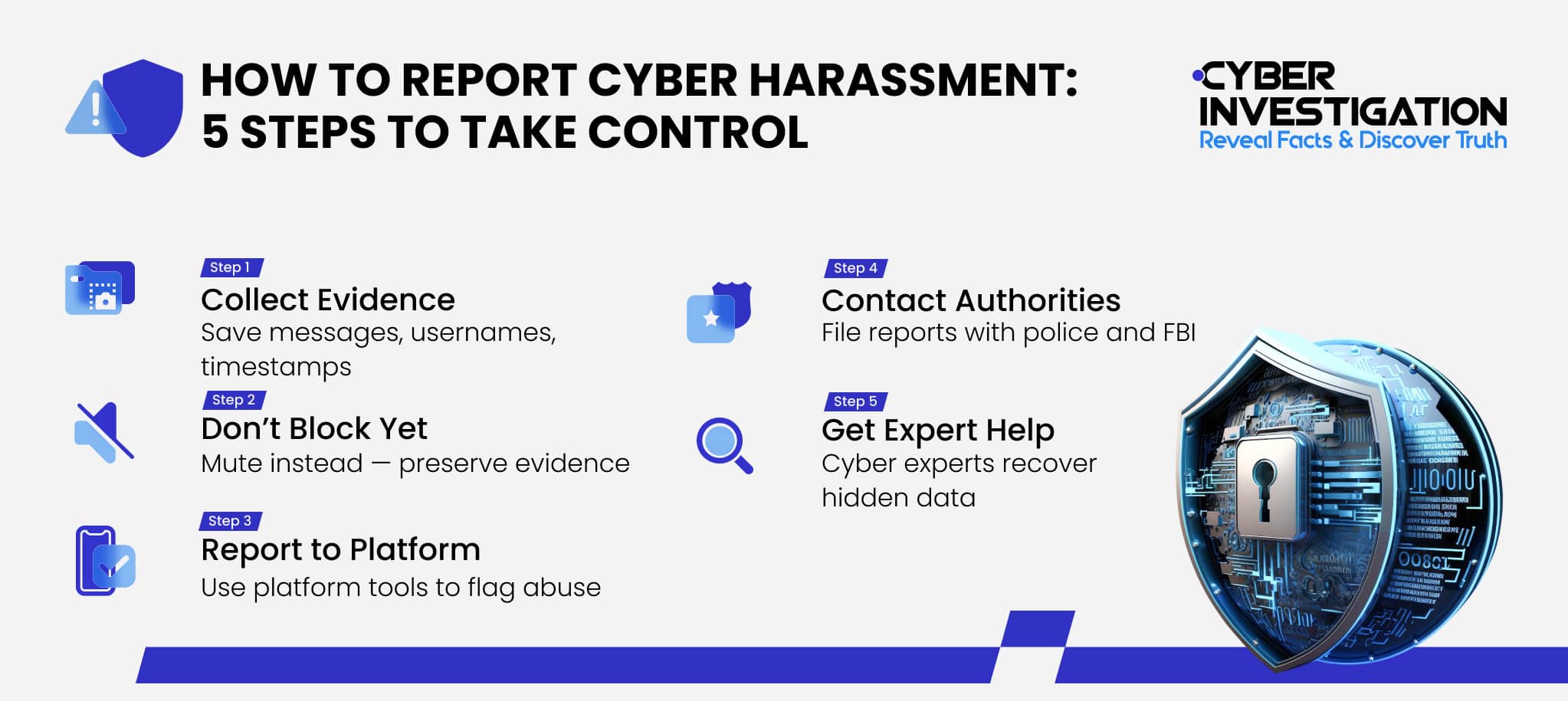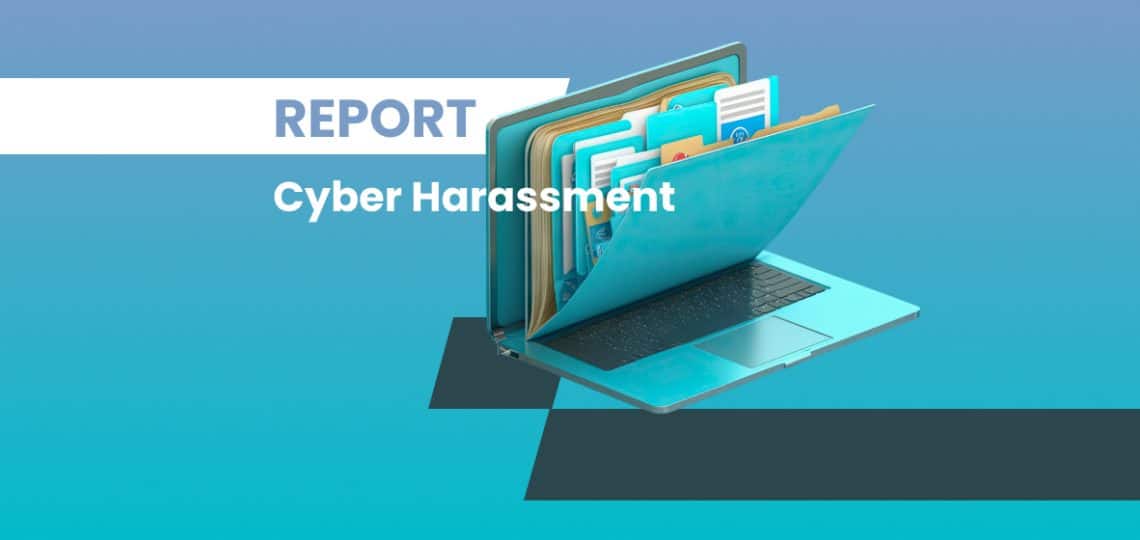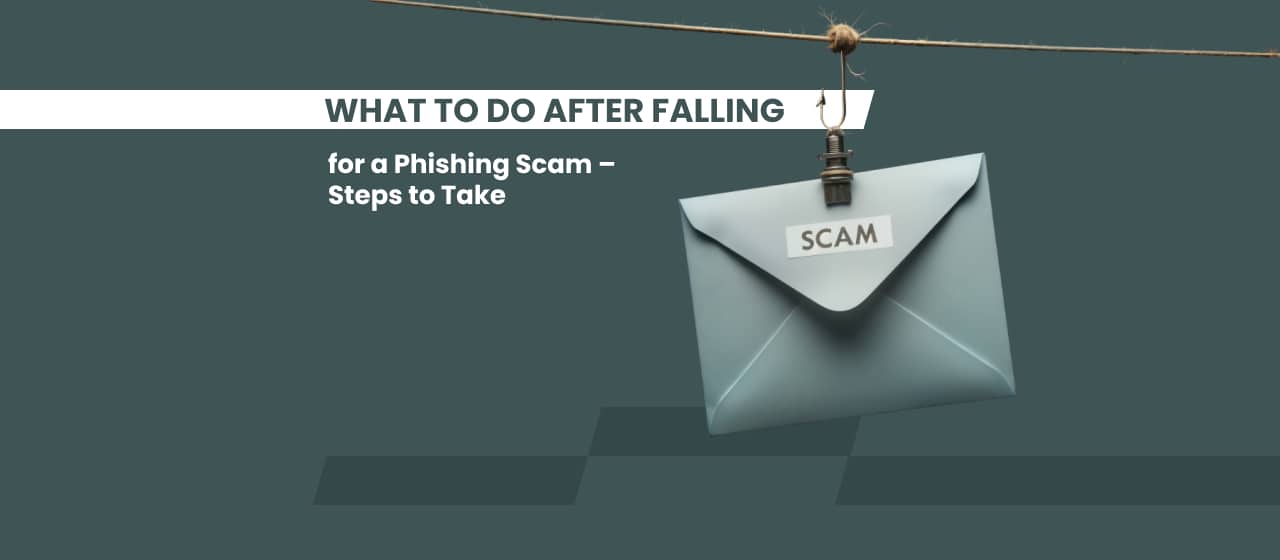41% of all adults in the United States have experienced online harassment. In the under-30 age range, that percentage jumps up to 64%. And yet, it’s estimated that between 60-90% of harassment cases go unreported. Many victims feel too afraid or ashamed to come forward, but silence only perpetuates the cycle. It’s important that all internet users know how to report cyber harassment, so read on to learn more.
What Should I Do if I’m Being Harassed Online?
If you’re being harassed by someone online, it’s best to not engage with them. Make it clear to them that their behavior is unwelcomed but avoid any further communication. Instead, you should focus your efforts on collecting evidence of the harassment. This information will be critical when you are reporting the incident. It includes:
- The name or account information of your harasser
- The messages or interactions that are causing you distress
- Timestamps of when the harassment occurred
It’s also important to mention that our experts advise against blocking the harasser. This may seem like the best way to cut them off, but blocking comes with the risk of deleting evidence. You should cease communication and mute the user, if the option is available, but leave them unblocked until you’ve completed your investigation.


Who Can I Report Cyber Harassment To?
There are numerous outlets who you can and should report online harassment to. They can help limit the perpetrator from reaching you, investigate the incident, and help you recover. Our analysts recommend reporting to the following organizations.
Online Platforms
You should report cyber harassment to the platform where it occurred. Most websites that allow for content sharing have safety features to report other users who are breaking the platform guidelines.
These reports are reviewed by the system administrator. If they determine a violation has occurred, the user may face consequences like suspension and permanent removal. This is an important step as it helps create a safer online environment for all of us.
Law Enforcement
You should always report online harassment of any kind to law enforcement. Start by filing a report with your local police. They may be able to help you investigate the incident and identify the perpetrator. If not, the report will still officially document the harassment.
Next, inform the FBI. They are the national agency tasked with handling cyber-enabled crimes, and they accept reports through the Internet Crime Complaint Center (IC3). Unlike local police, the FBI is less restricted by jurisdiction and can work with global law enforcement.
Cybersecurity Professionals
Consider the benefits of enlisting the assistance of cybersecurity experts. These firms have access to proprietary technology and can employ advanced digital forensics techniques to uncover evidence.
Every online interaction leaves a trail of code. Every file that is shared contains metadata that discloses information like creation date, devices used, and the region of origin. Cybersecurity professionals know how to locate and derive this information to identify the perpetrator.
How Do I Report Cyber Harassment?
We’ve addressed the proper initial response and who you report cyber harassment to. But what does the reporting process look like? Our team recommends the following steps to notify the proper authorities and hold the perpetrator accountable.
- Organize your evidence. Store your documented proof in a secure place you will be able to access without issue. Assign descriptive names to the screenshots that will allow you to recognize the file. Add the time and date to the file name to help chronologize your evidence.
- Report to the platform. Each platform has a slightly different way to report users or shared content. There is typically an options menu near profiles and content that provides options like “Report” or “Flag”. To find out how this is done on a specific platform, visit their help and safety center.
- Report to your local police. You can file a police report by gathering your evidence and heading to your local station. You may also be able to do it over the phone or online. Provide as much detail as you can to construct the most accurate timeline of events. If you feel an immediate risk to your safety, contact 9-1-1.
- Report to the FBI. This process is very similar to reporting to your local police. You can either visit the IC3 website or visit your nearest FBI field office. If the harassment includes more serious federal crimes such as violent claims and interstate criminal communication, report it to tips.fbi.gov.
Depending on the nature of the harassment, you may be able to pursue legal action against your harasser. These include court-ordered protections, civil suits, and criminal charges. You should consult a lawyer to discuss your options and the laws around harassment in your area.
Additional Resources for Victims of Cyber Harassment
There are also organizations that victims can turn to for guidance, emotional support, and an ear to listen. This can be just as important for recovery as holding the perpetrator accountable. Victims of cyber harassment are faced with a lot of complex emotions that can be hard to sift through on your own. Consider reaching out to these resources for help.
- 988 Crisis Lifeline. This helpline runs 24/7 for anyone dealing with mental health struggles, emotional turmoil, substance abuse issues, or any other crisis.
- Crisis Text Line. Similar to the 988 lifeline, this service allows users to connect with crisis counselors by texting “HOME” to 741741.
- Online Harassment Field Manual. This guide provides concrete strategies to help internet users keep themselves safe from online abuse. The manual is tailored especially for groups that are disproportionately targeted but is universally helpful.
And if you need any help reporting cyber harassment, you can always depend on the team here at Cyber Investigation Inc. We can help you uncover evidence, organize your report, and connect you with law enforcement. All of this is done with complete confidentiality, so you can rest assured that your privacy is our priority. Reach out today to speak with one of our specialists.







